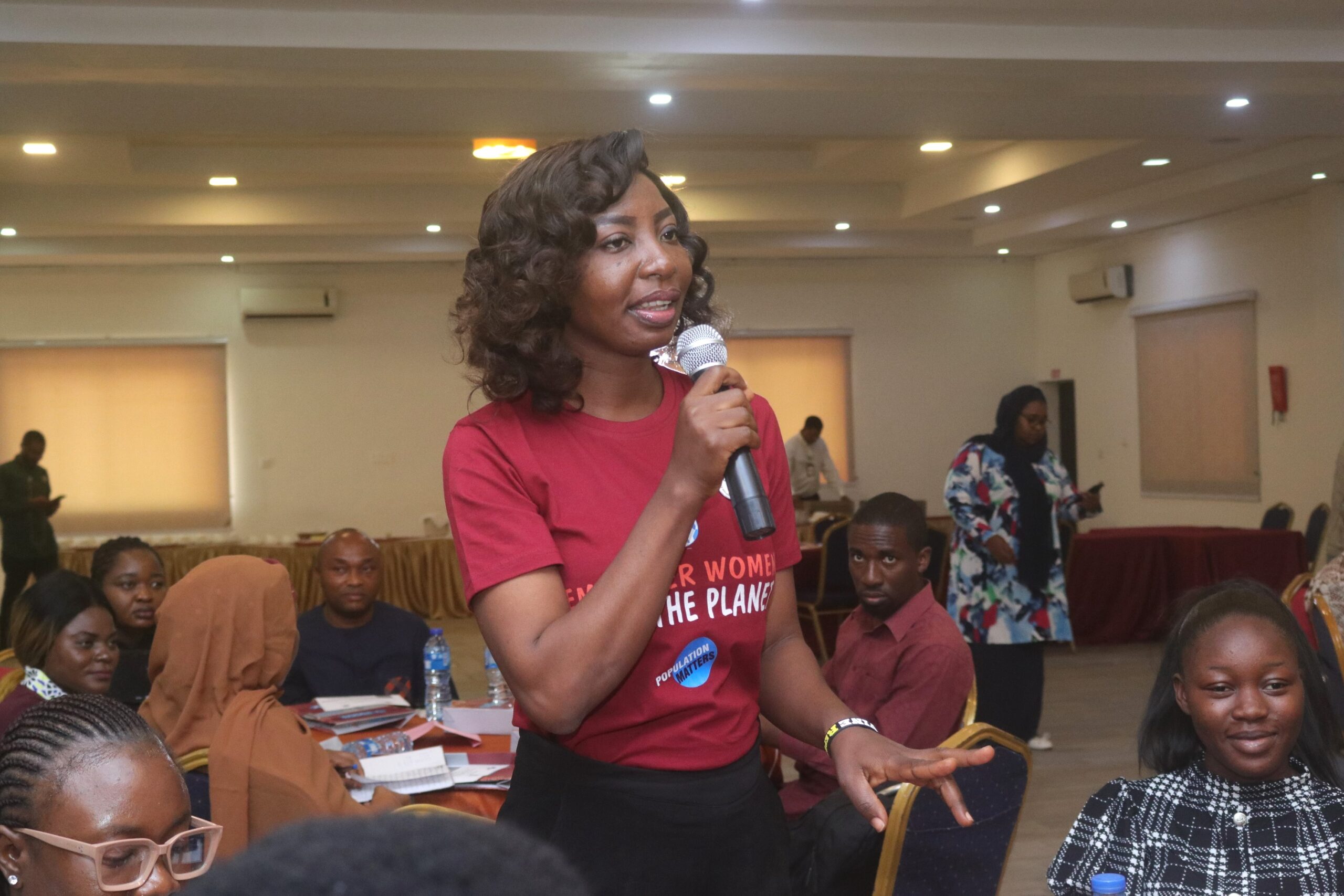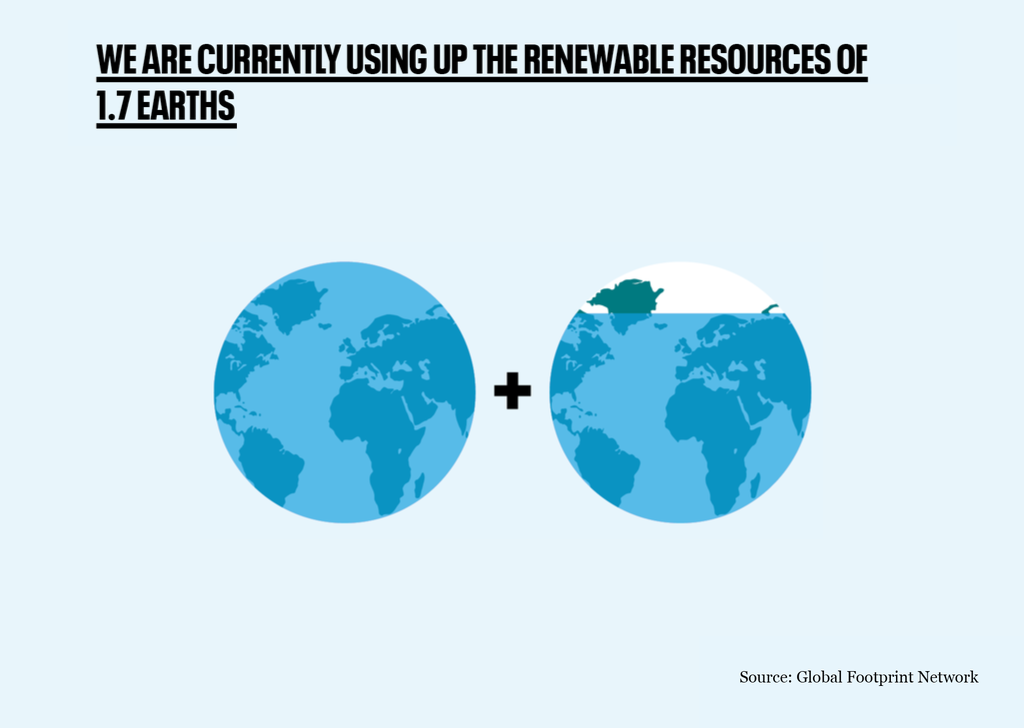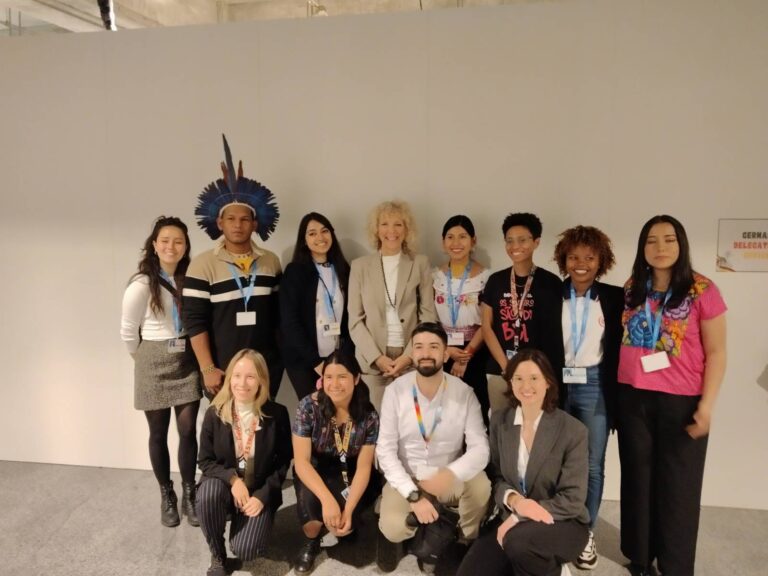
2024 in review: Population Matters in the Media
It’s been a busy year at Population Matters. We’ve welcomed our new CEO, Amy Jankiewicz, and held the successful Nigerian Population Conversation, which is reflected in the amount of media coverage we received in the last 12 months. Here we look at some of the articles and comment pieces featuring Population Matters in 2024.
An International Start to the Year
In February we held our Population Conversation roundtable event with our local partner, Civil Society Legislative Advocacy Centre (CISLAC).
The event hosted in Nigeria’s capital, Abuja, drew more than 90 people composing activists, experts, and journalists to discuss rapid population growth – one of Nigeria’s greatest challenges. You can read our blog reflecting on the event here.
The event received a lot of coverage in Nigerian media, including in two of Nigeria’s most widely read newspapers: Vanguard and The Guardian Nigeria.

Coverage in The Times
On 23 March, we had a letter published in The Times. It was in response to the article View on Britain’s falling birthrate: Baby Bust.
Sir, Britain’s fertility rate may be falling but our population is still growing: the Office for National Statistics predicts us to hit 70 million in 2026. Even if there were a rapid rise in birthrates now, there would still be at least a two-decade lag before these potential workers’ taxes were able to fund our social services. The UK is a rich country that can utilise its skilled workforce and adapt to the reality of an ageing population. And as your report suggests, migration could also play a role in our future workforce. The Lancet’s prediction of a low-fertility future should be viewed as a positive sign of increased equality, meaning that many women are able to choose to have fewer children, pursue higher education and careers.”
Madeleine Hewitt, The Times
In June, pronatalist advocate Paul Morland released his new book, No One Left: Why The World Needs More Babies. Following a piece published by The Times discussing Morland’s arguments, ‘Our future depends on us having plenty of children,’ the article sought balance with a quote from our CEO Amy Jankiewicz who was able to provide a rebuttal to Morland’s arguments.
The UK needs to be leading by example in not encouraging pronatalism. We’ve got to look at population on a global scale. All populations matter and we’ve got to consider the impact on the natural world.”
Amy Jankiewicz, The Times
Debunking Pronatalist Claims
In May, a profile piece was published in The Guardian on the pronatalist advocates Simone and Malcoln Collins. We had a letter published in response to the article by Campaigns and Media Officer Madeleine Hewitt.
Pronatalists like the Collinses, interviewed for your article (America’s premier pronatalists on having ‘tons of kids’ to save the world: ‘There are going to be countries of old people starving to death’, 25 May), emphasise their authority on the “data”, but their cherrypicked results neglect to look at the full picture that humanity’s outsized impact is degrading the natural resources upon which we all depend.
The Global Footprint Network says we are in ecological overshoot, with humanity using the resources of 1.7 Earths. The UN has made clear that our unsustainable demand for resources is driving the triple planetary crisis: climate change, biodiversity loss, and increasing levels of pollution and waste. And despite the rhetoric of Silicon Valley, technology is not our saviour; it is found to mitigate global extraction by only 5%.
It’s time pronatalists recognised that nothing in nature exists independently. The impacts of climate change are already endangering millions of lives, yet they ignore the Intergovernmental Panel on Climate Change’s data citing population growth and per capita consumption as the biggest drivers of emissions. The environmental crises cannot be ignored when their effects shape our world; instead we must act now to rein in our resource demand to solve these interconnected crises.”
Madeleine Hewitt, The Guardian

Later in the year, Madeleine also spoke to the team from the advocacy group Hope Not Hate and contributed some of Population Matter’s own research to their in-depth investigation Inside Pronatalism.
We also received coverage in USA Today with our Gilead Watch report cited as evidence of the dangers of pronatalism in response to the viral “childless cat ladies” comments made by Vice President-elect JD Vance. In response to Vance’s comments we also wrote to The New York Times and you can read a copy of the unpublished letter here.
A Voice in The Independent
On 11 July the world marked World Population Day and the United Nations released their latest population projections. They predict that the world will reach a population of 10 billion in the next 40 years.
Following this there was a lot of media attention placed upon the UK’s low birth rate and ageing population. In response, our CEO Amy Jankiewicz provided a comment piece for The Independent.
However, on the day that the United Nations has predicted that the perilous growth of the world population will mean it will reach 10 billion by 2061 (July 11 is World Population Day), there is a growing movement in the UK calling for pronatalism – the belief that the world needs more children. Surely we all know that we are already consuming more resources than the planet can sustain? We are already living way beyond our means. We know we are tipping the world over into irreversible climate change – which in turn erodes fertile soil, meaning more people must scrabble for more resources from diminishing land and water sources. We know we are killing off animal species at a dizzying rate. We are felling our rainforests, pumping oil and digging up and burning more coal in a frenzy to try to satisfy our increasingly voracious appetites for consumables.”
Amy Jankiewicz, The Independent
The piece once again emphasised the dangers of adopting a pronatalist agenda.
Pronatalism is a simplistic, misguided, sexist, racist and entirely irrational answer to the wrong question. The reductio ad absurdum of this philosophy is that we must destroy the planet (with more and more people) to save it.”
Quoted in The Guardian
In November, Amy was again quoted in an article in The Guardian, The global fertility crisis: are fewer babies a good or a bad thing? Experts are divided. She led with a benefit of a lower birth rate in the UK in a rebuttal against pronatalist advocate Paul Morland.
The World Wildlife Fund says that we’ve lost 73% of our wildlife population in the last 50 years,” The plunging fertility rate, she says, is “cause for celebration”. As she points out, the current UK population is about 68.3 million and is expected to reach 78 million by 2050. “It’s not sustainable.”
Amy Jankiewicz, The Guardian

Stay tuned for next year
This is just a selection of Population Matters’ coverage over the last year. If you want to see more stories from 2024, check out our media coverage page and you can see our press releases here.
Thank you to all those who supported our work this year. Though we won’t rest on our laurels just yet, we have lots of things planned for 2025 and look forward to updating you on them as the year unfolds.



